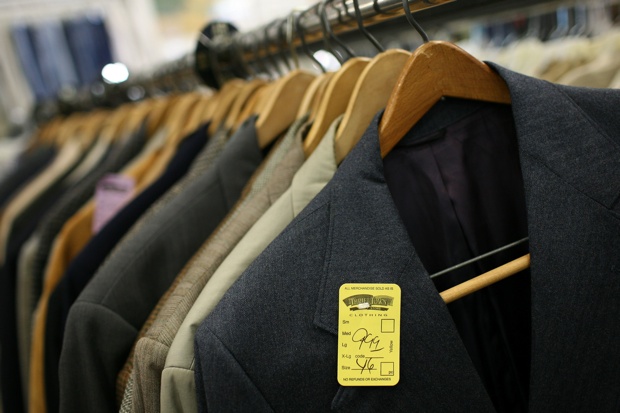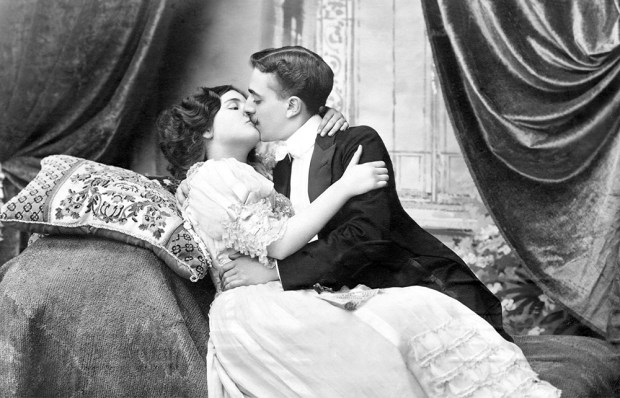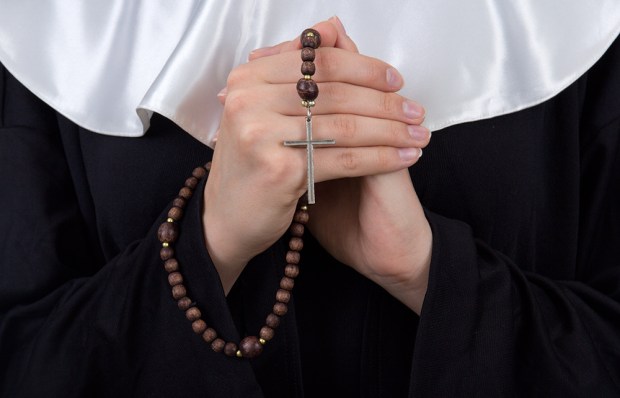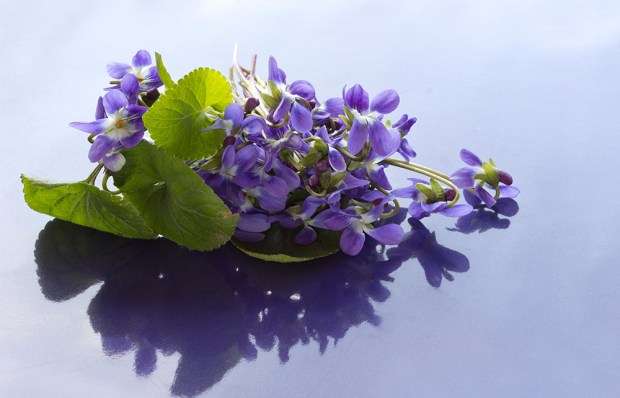I’d been trying to curb the habit — one day at a time — and then I felt a bit toxic and marched smartly into my favourite local charity shop as though I were on rails. I’ve been in this particular one a thousand times — a peasant enamoured with tat. I know all the volunteers by sight. One day it might be the big humble guy in the frock and with the devil-may-care approach to applying his lipstick. Or it might be the elderly deaf woman who taps at the touch-screen till with a trembling, apprehensive forefinger, as though the thing were an unexploded bomb; and always, always making a catastrophic error, and having to call the shop manager out from her Aladdin’s cave at the back of the shop, to void the transaction, reset the till, and begin again; and you are standing there for five minutes or more, by which time your almost concupiscent urge to own that £2.50 James Last and his Orchestra anniversary boxed set has entirely evaporated.
Or it might be the suspicious young Pole who imagines that the moment his back’s turned we’ll all be frantically stuffing Coronet paperbacks down the fronts of our trousers. Or the other young man, psychotic with amiability, who imagines he’s working in haute couture and suavely compliments sir or madam on their excellent and discriminating choice of garment. ‘What lovely material, sir! Such a quality cut! Between us, sir, I’ve had my eye on that one ever since it came in,’ he exults, as he folds some deceased old farmer’s best market-day shirt with elaborate care and guides it reverently into the bag.
But on this particular day, the woman leaning heavily across the counter and gazing out of the window was a volunteer I hadn’t seen before. She was a woman of about my age. Calm. Or rather, a cold, pointed indifference to the people and activity around her. An attractive hardness.
I followed the line of her gaze. Across the road is a pub. It’s the one traditionally frequented by the town’s cider alcoholics because it serves, or used to serve, rough farm cider. Against the pub wall is a long wooden bench. Seated along this bench was a row of boozers, elderly in manner though not old, sitting with their faces turned to the sun, every one of them a town character. I’d known several of them in their younger, wilder days.
I looked again at this new volunteer, at her thickened body bent at the waist. The eyes didn’t betray her. The meditative gaze didn’t alter. But she knew when she was being looked at. ‘Look at them,’ she said. ‘Alcoholics. Every one of them.’ I looked again. Each puffy, florid face was indeed the face of chronic alcoholism. Then she turned her head to examine me, her black eyes reading then dismissing me as your average bore in a moment. But she thought she might as well allow me to hear her chief complaint. ‘And I have to stand here and look at them every day that I come in here,’ she said. ‘Those tossers.’ Then she swung her attention with finality back to the drunks, brooking no further conversation, not with a twat like me, anyway.
Then I recognised her. She’d put on weight in the 30 years since I’d known her. In her prime, Rachel was the most sought-after woman in town. A legend. Eventually she found her niche among the town’s tough guys, going from tough, to tougher, to the toughest: a man who was frequently kept in a prison. In a strange way, she became the arbiter and repository of the town’s masculine culture and was highly respected.
She eyed me speculatively in a pub once upon a time, through that intimidatingly thick mascara she always wore. She must have been terribly bored that night. And I didn’t feel man enough, I remember, and abjectly looked at the floor. And now here she was, unrecognisably big. And there they were, on the bench opposite, some of the dramatis personae of our invincible days, now tragic and enfeebled.
‘Do you recognise me, Rachel?’ I said. I mentioned a few of her old boyfriends that I knew. She returned her attention to me with profound reluctance and looked me over. ‘No,’ she said. ‘And anyway. That’s all in the past.’ I proffered a dog-eared copy of Good Morning, Midnight. She glanced at the picture on the cover, a woman loitering under a streetlight, and gave a tight cat’s smile.
‘That’ll be one pound fifty, sir,’ she said with sarcastic brightness.
Got something to add? Join the discussion and comment below.
Get 10 issues for just $10
Subscribe to The Spectator Australia today for the next 10 magazine issues, plus full online access, for just $10.
You might disagree with half of it, but you’ll enjoy reading all of it. Try your first month for free, then just $2 a week for the remainder of your first year.















Comments
Don't miss out
Join the conversation with other Spectator Australia readers. Subscribe to leave a comment.
SUBSCRIBEAlready a subscriber? Log in